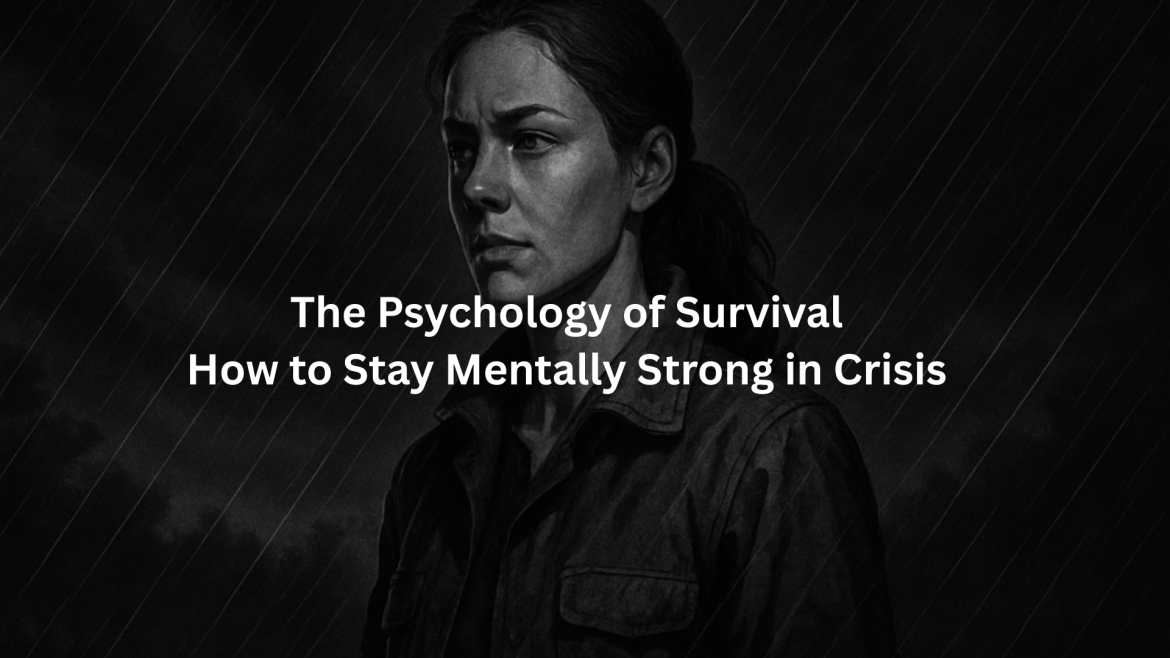The Psychology of Survival: How to Stay Mentally Strong in Crisis
When disaster strikes—whether you’re lost in the wilderness, facing a sudden crisis, or enduring the aftermath of a catastrophe—your physical survival skills are only part of the equation. The real battle happens in your mind. In high-stakes situations, mental resilience can be the difference between giving up and pushing through.
At Survival Siren, we’re here to unpack the psychology of survival and share proven strategies to keep you mentally strong when the world feels unstable. Because when everything’s on the line, your mindset is your ultimate survival tool.
Why Mental Strength Matters in Survival
Your mental state can shape your fate in a crisis. Here’s why building mental toughness is critical:
- Reduces Panic and Poor Decision–Making: Staying calm prevents rash moves that could cost you dearly.
- Increases Focus, Clarity, and Resourcefulness: A sharp mind finds solutions where others see only problems.
- Supports Emotional Stability During Prolonged Crises: Long-term stress is draining—mental strength keeps you grounded.
- Improves Team Cooperation and Morale: A steady mindset lifts the group, fostering unity and hope.
In a survival scenario, mental strength transforms chaos into opportunity. It’s not just a bonus—it’s a necessity.
1. Understanding the Survival Mindset
Survival isn’t about what you carry in your pack—it’s about what you carry in your head and heart. Let’s break down the traits that define a survival–oriented mindset:
Key Traits of a Survival–Oriented Mindset:
- Optimism Grounded in Reality: Hope drives you forward, but it’s tempered by a realistic assessment of your situation.
- Example: “This is tough, but I can find water if I keep moving.”
- Emotional Regulation: Keeping fear, anger, or sadness in check ensures they don’t derail your decisions.
- Quick Tip: Label your emotions—“I’m scared”—then shift focus to the next step.
- Problem–Solving Ability Under Stress: Break overwhelming challenges into manageable pieces.
- Hack: Ask, “What’s one thing I can do right now?”
- Adaptability and Flexibility: Plans fail—being able to adjust on the fly keeps you alive.
- Strong Sense of Purpose or Goal Orientation: A reason to survive—like returning to loved ones—anchors your resolve.
- Real–Life Note: Survivors often cite family or personal goals as their driving force.
These traits aren’t innate for most—they’re skills you can develop with practice.
2. Common Psychological Challenges in Survival Situations
Crises push your mind to its limits. Here are the biggest mental obstacles you’ll face—and how to overcome them:
Fear and Panic
- What It Does: Adrenaline and cortisol flood your system, fogging your thinking and triggering impulsive actions.
- How to Beat It: Use breathing exercises or grounding techniques to regain control.
- Try This: Inhale for 4 seconds, hold for 4, exhale for 4, hold for 4—repeat until your heart slows.
Loneliness and Isolation
- What It Does: Being alone can sap motivation, leading to depression or apathy.
- How to Beat It: Build a routine—simple tasks like gathering resources or resting at set times keep you engaged.
- Pro Tip: Talk out loud to yourself or an imagined friend—it’s a proven morale booster.
Hopelessness or Fatalism
- What It Does: Thoughts like “I’m doomed” can lead to giving up or taking reckless risks.
- How to Beat It: Set small, achievable goals—like finding food or building a fire—and use positive self-talk.
- Mindset Shift: Tell yourself, “I’ve made it this far—I can take one more step.”
Key Takeaway: Your mind will try to sabotage you. Fight back with structure and optimism.
3. Techniques to Build Mental Resilience
Mental toughness isn’t magic—it’s a muscle you can train. Here are practical techniques to strengthen your mental resilience:
Mental Rehearsal (Visualization)
- What It Is: Imagine yourself handling a crisis calmly and successfully—finding shelter, staying cool under pressure.
- Why It Works: Your brain preps for real action by “practicing” in a safe space.
- How to Start: Spend 5 minutes daily picturing a tough scenario and your confident response.
Controlled Breathing (Box Breathing)
- What It Is: A simple pattern—inhale 4 seconds, hold 4, exhale 4, hold 4, repeat.
- Why It Works: It lowers stress hormones and restores focus fast.
- When to Use: Anytime panic creeps in or before a big decision.
Daily Routine Creation
- What It Is: Stick to a basic schedule—wake, eat, work, rest—even in chaos.
- Why It Works: Predictability fights anxiety and preserves mental energy.
- Survival Hack: Plan small tasks—like checking supplies at noon—to stay in control.
Gratitude Practice
- What It Is: Each day, name three things you’re thankful for—a dry spot, a tool, a breath of air.
- Why It Works: It shifts your focus from loss to gain, lifting your spirits.
- Try This: Say them aloud for extra impact.
Journaling or Mental Reflection
- What It Is: Write down (or mentally review) your day—wins, fears, next steps.
- Why It Works: It processes emotions and keeps your priorities clear.
- No Paper?: Scratch notes in the dirt or talk it out in your head.
Pro Insight: Start these habits now—they’ll be second nature when you need them most.
4. Group Dynamics and Survival Psychology
In a group, mental strength is contagious—for better or worse. Here’s how to keep the collective mindset strong:
Tips for Positive Group Mental Health:
- Assign Clear Roles: Give everyone a purpose—water gatherer, morale booster—to build unity.
- Encourage Open Communication: Let people voice fears or ideas—silence breeds tension.
- Conflict Fix: Use “I feel” statements to avoid blame—“I feel worried when we argue.”
- Rotate Leadership: Share responsibility—different strengths shine at different times.
- Boost Morale: Share a laugh, a story, or a group task—connection fuels hope.
Real–World Example: A stranded hiking group survived days in the cold by assigning roles and singing songs—team spirit kept them going.
5. Real–World Survival Stories & Psychological Lessons
Survivors teach us that mental strength isn’t theory—it’s practice. Here are two inspiring examples:
Ernest Shackleton’s Antarctic Expedition
- The Story: Shackleton’s crew was trapped in ice for over a year after their ship sank. Against all odds, they survived.
- The Lesson: Shackleton’s calm leadership, daily routines, and morale boosts—like storytelling—kept despair at bay.
- Takeaway: A steady mind and group unity can conquer even the harshest odds.
Modern Disaster Survivors
- The Story: From floods to earthquakes, survivors often rely on mental tricks—prayer, exercise, or focusing on others—to endure.
- The Lesson: Staying mentally active and hopeful turns victims into victors.
- Example: A flood survivor coped by helping neighbors, channeling fear into purpose.
Big Idea: Survival isn’t passive—it’s an active choice to engage your mind and spirit.
Frequently Asked Questions (FAQs)
1. Can mental training really improve survival odds?
Yes! Studies show that mentally prepared people respond quicker, think clearer, and stay motivated longer. It’s a game-changer.
2. What if I start panicking in a survival situation?
Slow your breath—try box breathing—and focus on one small task: shelter, water, warmth. Action kills panic.
3. Is it okay to cry or feel scared in a crisis?
Totally. Feeling emotions is normal—what counts is not letting them steer the ship. Acknowledge, then act.
Conclusion
In survival, your tools get you started, but your mental grit gets you home. A resilient mindset keeps you calm, decisive, and hopeful when the stakes are highest. At Survival Siren, we’re committed to helping you master the psychology of survival—because in a crisis, your mind is your compass. Build it now, and you’ll be unstoppable later.
🧠 What mental trick helps you stay focused in stressful times? Share below!




